EU Treaty changes looked impossible, but became inevitable
Ralitsa Kovacheva, November 4, 2010
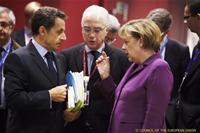 The October European Council was as decisive, as it was next to the last. Because although EU leaders have opened the door to important decisions, they left them for the December Council. It could not be otherwise, given that just days before the summit the Franco-German proposal of Deauville completely changed the focus of discussions by pulling forward the issue of changes in EU Treaties.
The October European Council was as decisive, as it was next to the last. Because although EU leaders have opened the door to important decisions, they left them for the December Council. It could not be otherwise, given that just days before the summit the Franco-German proposal of Deauville completely changed the focus of discussions by pulling forward the issue of changes in EU Treaties.
Germany, backed by France, insisted on amendments, which are to legitimise the establishment of a permanent rescue mechanism for the euro area, instead of the current temporary fund for Greece. The reason is that, if established, given art.125 which prohibits the "bail-out" of eurozone countries in financial difficulties, the Fund may be overruled by the German Constitutional Court. And without Germany, it simply cannot be created. As German Chancellor Angela Merkel explained the situation: „We need a treaty change and if there is one member country that requires a treaty change, the treaty will simply have to change.”
The results from the Council fully confirmed our forecast that the leaders will  endorse in principle the need of a permanent crisis resolution mechanism for the euro area and in this sense – of possible Treaty changes. But only in principle and in general, because the options the amendments to be made in the most painless way are yet to be explored.
endorse in principle the need of a permanent crisis resolution mechanism for the euro area and in this sense – of possible Treaty changes. But only in principle and in general, because the options the amendments to be made in the most painless way are yet to be explored.
In the Council conclusions it is stated that the leaders invite the "President of the European Council to undertake consultations with the members of the European Council on a limited treaty change required to that effect, not modifying article 125 TFEU ("no bail-out" clause).”
According to Article 125, the Union and the Member States “shall not be liable for or assume the commitments of central governments, regional, local or other public authorities, other bodies governed by public law, or public undertakings of any Member State”.
Therefore, as Ms Merkel explained, there will be no changes aimed at saving a troubled country, but at ensuring the integrity and stability of the euro area as a whole. So the problematic article could be surrounded and the so-called simplified revision procedures to be applied, as described in Art. 48. The precondition, however, is any changes should not increase the competences conferred on the Union in the Treaties.
According to Art. 48 “The European Council may adopt a decision amending all or part of the provisions of Part Three of the Treaty on the Functioning of the European Union. The European Council shall act by unanimity after consulting the European Parliament and the Commission, and the European Central Bank in the case of institutional changes in the monetary area. That decision shall not enter into force until it is approved by the Member States in accordance with their respective constitutional requirements.”
This means that ratification by national parliaments is obligatory but referenda can be avoided even in Ireland, commented for euinside Atanas Semov, professor in European Law. He predicted, given the consensus reached by EU leaders, that "the change will be shaped as a proposal relatively quickly (by the end of the year), signed early next year - perhaps under the name "Brussels Treaty” and ratified without referenda by the end of 2011”.
In fact, it is not about changing the Lisbon Treaty, Mr Semov explained, because it is in itself an amending treaty. What will be amended are the two EU Treaties: the Treaty on European Union (TEU; also known as the Treaty of Maastricht) and the Treaty on the Functioning of the European Union (TFEU). So the new amendment will be another amending treaty, just as the Lisbon Treaty, and before that - the Treaties of Nice, Amsterdam etc.
Especially in the case of Ireland, where the topic is most painful, a referendum can be avoided if any changes would not lead to the transfer of more powers to the EU. Unlike Germany, in Ireland this issue is a competence of the Attorney General, who is a member of the government.
Everything said so far shows that treaty changes are unlikely to be that dramatic and problematic, at least regarding the rescue mechanism. However, things appear to be different regarding the other German request - for suspension of voting rights of eurozone countries that violate the Stability and Growth Pact. Ms Merkel explained that this requires far more serious changes of the Treaties.
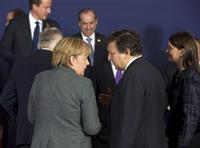 It was clear beforehand that this proposal would meet firm resistance both from the other Member States and from Commission President Jose Manuel Barroso. Yet when entering the Council, he described it as "unacceptable” and “unrealistic". However, Angela Merkel said the issue was still on the agenda.
It was clear beforehand that this proposal would meet firm resistance both from the other Member States and from Commission President Jose Manuel Barroso. Yet when entering the Council, he described it as "unacceptable” and “unrealistic". However, Angela Merkel said the issue was still on the agenda.
At this stage in the conclusions it is noted only that “The President of the European Council intends to subsequently examine in consultation with the Member States the issue of the right of euro area members to participate in decision making in EMU-related procedures in the case of a permanent threat to the stability of the euro area as a whole.”
Against this background, the statement of Bulgarian Prime Minister Boyko Borissov for Bulgarian media in Brussels caused a slight confusion, as he said: "That is what they have adopted. As of 2013 any eurozone country that systematically violates the budget deficit above 3% will be sanctioned also with the possibility of suspending of voting rights in this area only. Actually, this is what we want. "
10 minutes later, answering euinside's question about his opinion on the political 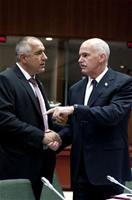 sanctions (suspension of voting rights), the Prime Minister replied: "This in practice may not happen before 2013 ... It must pass through the parliaments of all 27 states. Practically I do not see it possible. This means again going through the Czech Republic, again through here and there, where you know how difficult the Lisbon Treaty itself was to be approved. But what is important to me and in my speech I supported Chancellor [Angela] Merkel and [President Nicolas] Sarkozy with regard to those who pulled Greece out of the crisis; those who were signing the checks and were giving guarantees, now we must support them and their parliaments for this, I'd say heroism, to save the euro area and the euro in those difficult months. Therefore we must support this phrase: including that there may be suspension of voting rights. But this is such an extreme measure, which I am convinced will never be applied in the EU."
sanctions (suspension of voting rights), the Prime Minister replied: "This in practice may not happen before 2013 ... It must pass through the parliaments of all 27 states. Practically I do not see it possible. This means again going through the Czech Republic, again through here and there, where you know how difficult the Lisbon Treaty itself was to be approved. But what is important to me and in my speech I supported Chancellor [Angela] Merkel and [President Nicolas] Sarkozy with regard to those who pulled Greece out of the crisis; those who were signing the checks and were giving guarantees, now we must support them and their parliaments for this, I'd say heroism, to save the euro area and the euro in those difficult months. Therefore we must support this phrase: including that there may be suspension of voting rights. But this is such an extreme measure, which I am convinced will never be applied in the EU."
From this statement we can see that obviously Germany (and France) has not abandoned its intentions; that perhaps the official conclusions do not reflect in full degree the readiness of the leaders to take such a decision; and that Bulgaria has supported potential political sanctions for eurozone countries. It is not clear, however, why the Bulgarian Prime Minister believes that these sanctions will never be used.
As for the rescue fund itself, in the Council's conclusions it is noted only that the Commission will undertake “in close consultation with the President of the European Council, preparatory work on the general features of a future new mechanism, i.a. the role of the private sector, the role of the IMF and the very strong conditionality under which such programmes should operate.” Ms Merkel stressed particularly on the involvement of private stakeholders, especially banks: "We want to include the private sector that has earned good money with the problem of a country.” Also, on the very strict conditions under which the Fund would provide assistance : “What’s important is that a country also then obviously has to submit to very strong program in order to successfully get out of that crisis.”
The Financial Times quoted officials saying that “by ruling out amendments to the “no bail-out clause”, EU leaders in effect ruled out having any form of EU credit guarantee as part of the future mechanism”. According to newspaper’s official sources in Berlin, “the mechanism is no longer intended to be an “orderly insolvency” process, as Mr Schäuble proposed during the Greek debt crisis. Instead, it would ensure that eurozone members do not default on their debts and continue to pay the interest on their borrowing.”
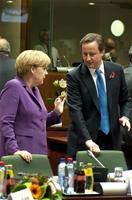 In mid-December, EU leaders will meet again in Brussels to take final decisions. It appears that the changes will gather the necessary support, moreover, that many countries have successfully “traded” their votes in favour: France – in exchange for mitigating the German position on the issue of sanctions, Britain - in exchange for the German support for smaller increase of the EU budget, Poland - in exchange for removing the costs of pension reforms from the budget deficit. euinside analyses on the topic of EU budget is coming in the next few days.
In mid-December, EU leaders will meet again in Brussels to take final decisions. It appears that the changes will gather the necessary support, moreover, that many countries have successfully “traded” their votes in favour: France – in exchange for mitigating the German position on the issue of sanctions, Britain - in exchange for the German support for smaller increase of the EU budget, Poland - in exchange for removing the costs of pension reforms from the budget deficit. euinside analyses on the topic of EU budget is coming in the next few days.
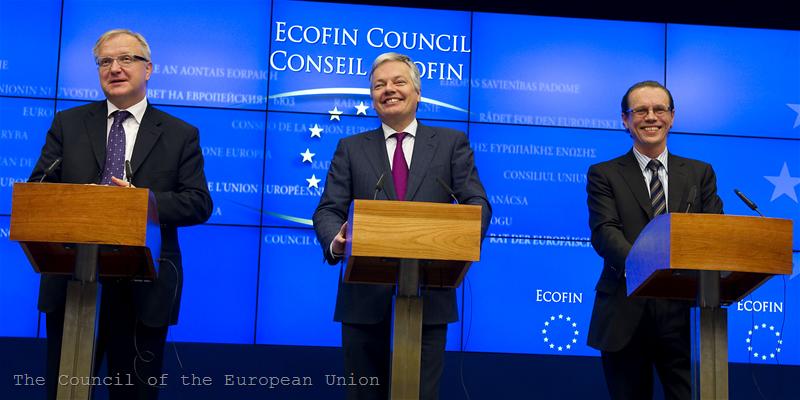 | © The Council of the European Union
| © The Council of the European Union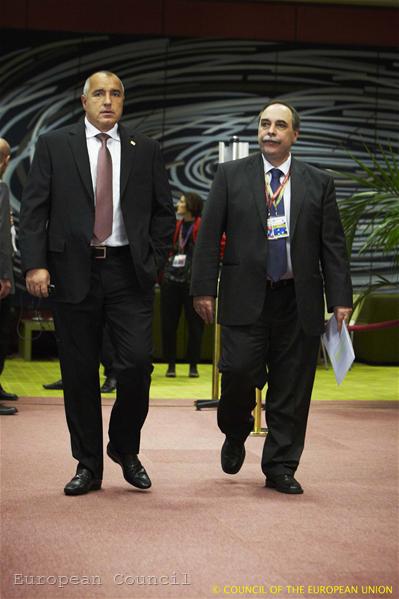 | © European Council
| © European Council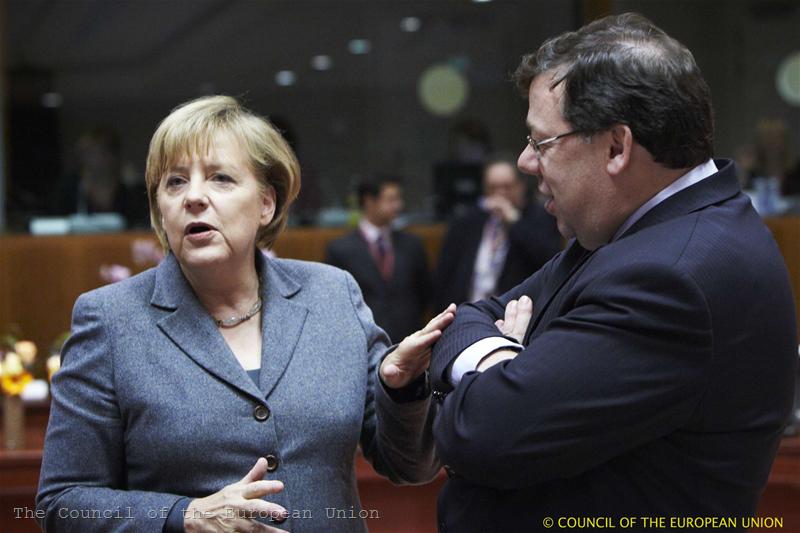 | © The Council of the European Union
| © The Council of the European Union